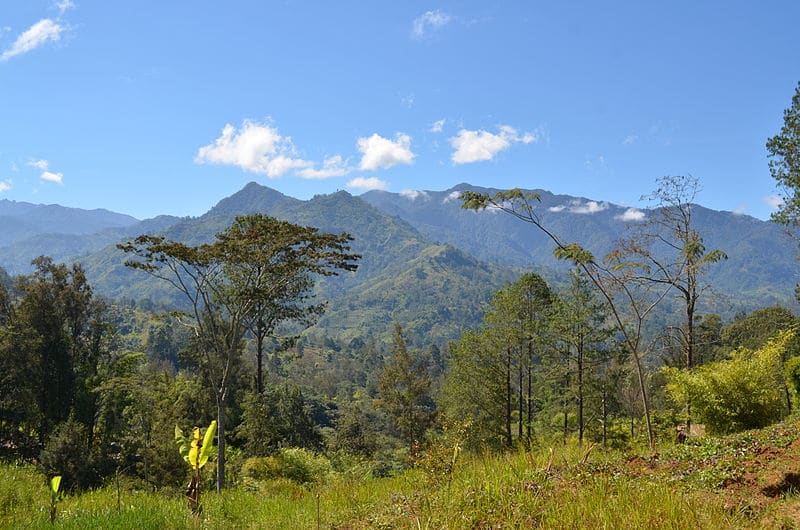Papua New Guinea Travel Vaccines and Advice

Papua New Guinea is wonderfully exotic, offering a variety of scenes with flat and mountainous landscapes. Upon arrival, visit the capital of Port Moresby which offers the National Museum and a Zoological Garden. For a different experience, take the time to discover the village of Asaro to meet the famous “Men of mud.” With many islands, you will have no problem in finding a quiet place to relax. Enjoy the local produce such as watermelons, tomatoes or papayas. During the evening, try the traditional dish of sea cucumber soup.

Recommended travel vaccinations for Papua New Guinea
| Vaccine | Disease Transmission |
|---|---|
| Traveler’s diarrhea | Contaminated water/food |
| Cholera | |
| Typhoid | |
| Hepatitis A | |
| Hepatitis B | Contaminated body fluids (blood, sex, razors, needles, etc.) |
| Rabies | Infected Animals |
| Japanese Encephalitis | Mosquito Bites |
| Influenza | Airborne Droplets |
Recommended Medication for Travelling to Papua New Guinea
| Medication | Additional Information |
|---|---|
| Acetazolamide or Dexamethasone | Recommended for prevention of acute mountain sickness |
| Azithromycin or Suprax | Antibiotic in case of traveler’s diarrhea |
| Malarone, Doxycycline or Mefloquine | Recommended anti-malaria medication |
Current Weather in Papua New Guinea
Medical Care in Papua New Guinea
A combination of lack of medical equipment and shortage of medicine has created an unreliable health care system in Papua New Guinea. Common health problems can be treated at the Port Moresby General Hospital, but rural areas only offer mission stations and small hospitals. As such, patients experiencing serious medical problems should be evacuated to Australia.
There are many well-supplied pharmacies in the country which are open all the time. However, it is essential to consult a doctor before buying drugs.
There are no centralized emergency numbers in Papua New Guinea. You can call 111 in order to summon the St John Ambulance service.
Is Papua New Guinea Safe for Travel?
| Safety and Security | Descriptive |
|---|---|
| Crime | Risk present; Beware of carjacking |
| Demonstrations | Risk of violence |
| Road safety | Poor road conditions; Caution required |
| Public transportation | Avoid taxis or buses |
| Bougainvill Island | Caution required |
| Trekking/mountaineering/hiking | Click the link below for precautions |
| Women’s safety | Risk present |
| Health | Zika virus, Polio and Chikungunya warning |
| Risk level | High degree of caution |
Do I Need a Visa to Visit Papua New Guinea?
Prior to travel, make sure you check with your transportation company about any passport requirements. This is important as in some cases their regulations on passport validity may be more strict than those of the destination country.
Both, a visa and a passport are required to enter Papua New Guinea. The passport must be valid for at least 6 months beyond the date of departure.
Please click here for more information.
Embassy of Canada to Papua New Guinea information
When travelling to another country, it is important to know where the Canadian embassy is located in the event of:
- A legal problem
- A lost passport
- The need to report a crime
It is advisable to make a copy of your original passport in case you lose it.
Australian High Commission to Papua New Guinea (PORT MORESBY)
Street Address:
Godwit Road, Waigani NCD,
Port Moresby, Papua New Guinea
Tel.: (675) 7090 0100
Fax: (675) 325 9239
Email: [email protected]
Click here to access the high commission’s website
Please note that this is the website for the Canadian High Commission in Australia. As a Canadian, you can use the Australian embassy. There is no Canadian governing office in Papua New Guinea.
Canadian High Commission to Australia (CANBERRA)
Street Address:
Commonwealth Avenue,
Canberra ACT, Papua New Guinea 2600
Tel.: (61) 2 6270 4000
Fax: (61) 2 6270 4060
Email: [email protected]



